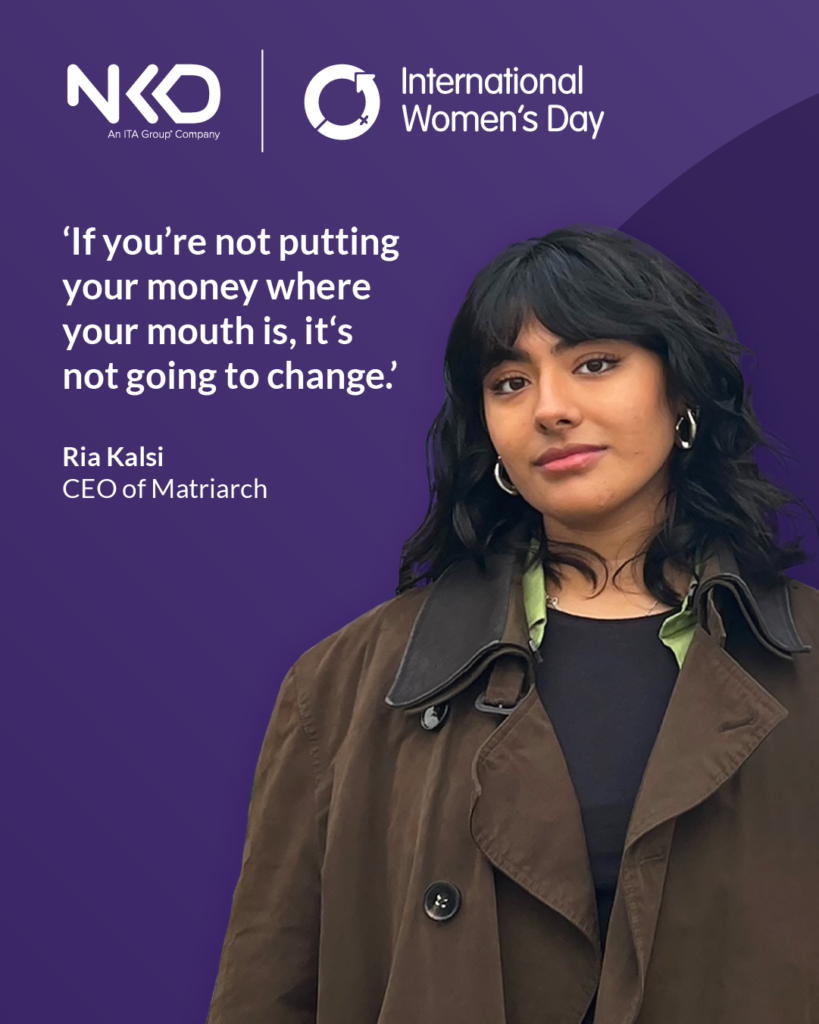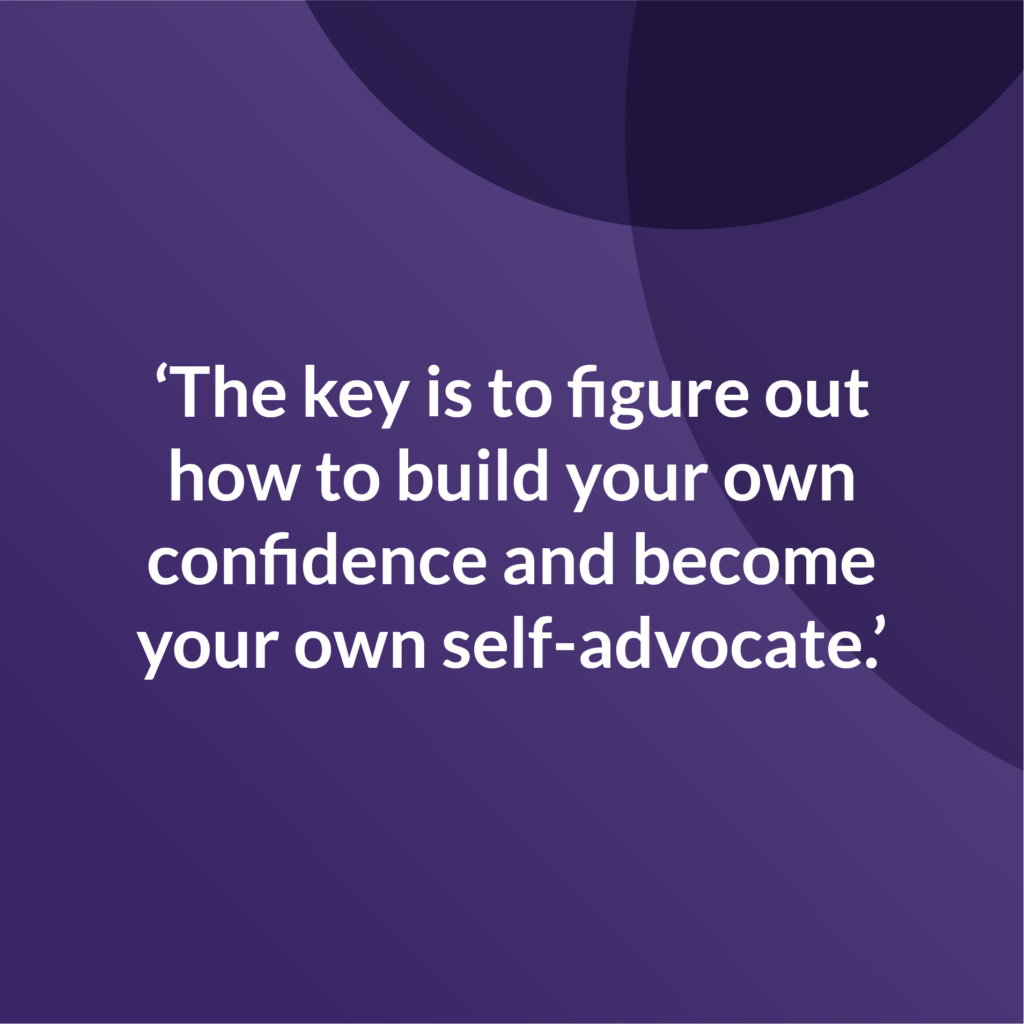
March 8th is International Women’s Day, a day in which we celebrate women’s achievements, raise awareness against bias, and act for equality. This year, the theme is #AccelerateAction. Focusing on the need to Accelerate Action emphasises the importance of taking swift and decisive steps to achieve gender equality. It calls for increased momentum and urgency in addressing the systemic barriers and biases that women face, both within personal and professional spaces.
We caught up with Matriarch CEO, Ria Kalsi to talk all things International Women’s Day.
Matriarch provides people with a life education, outside of education, working with schools, corporate companies and the public to learn about those taboo life topics and grow practical skills.
NKD: Ria, The 8th of March marks International Women’s Day. What are your thoughts and feelings around this day?
Ria Kalsi: I think, on the whole, it’s positive, but there is always a hint of apprehension, knowing that you’re inevitably going to receive comments or questions like, “What about International Men’s Day?” But I think, in this line of work, you get that with anything. However, overall, I do believe it’s a wonderful opportunity to focus, celebrate, and build momentum around people’s achievements. For me, it’s really about embracing the chance to celebrate, which I think is beautiful.
NKD: Are there any ways you actively champion gender equality?
Ria: I’ve had to think harder about this one because I’m very fortunate in that the majority of the people I work with are women—I lead a team that’s almost entirely female, and I’m always working with women. So, I don’t tend to think about it in the same way I might if I were interacting more often with people of other genders. However, beyond my job and delivering workshops, I think it’s about bringing this mindset (championing gender equality) into everyday conversations. Whether it’s with family, housemates, or in social settings, it’s about fostering curiosity and mindfulness.
More people need to ask, “Who’s not represented in this conversation?” or “What would this person think? How would they feel about that?” As soon as you shift that lens, you start to see things differently. You realise that the perspective I see the world through is not the only one. The more we can bring this mindset in the more helpful it is.
There’s also the importance of challenging when the opportunity arises—not necessarily in an aggressive way, but with curiosity. If you hear words, phrases, or things that don’t quite sit right, and your intuition feels off about it, follow that instinct. Ask, “what did you mean by that?” or, “why did you say that?” I try to bring that energy into as many conversations as I can.
Of course, as a woman, it’s exhausting sometimes. It can be tiring to always be thinking in that way or to constantly challenge and question people. So, it’s also important to take a step back and allow yourself to say, “I’m going to leave it today.” That’s okay too.
NKD: What do you think are the most important actions that organisations can take right now to accelerate gender equality in the workplace, and how can these changes be sustained?
Ria: I think it’s very unfortunate that it often comes down to budget, time, and money. Right now, especially with the current social and political climate, if you’re not investing your money and time into initiatives that promote equality—whether that’s supporting progression through mentorship, ensuring equal pay, or placing more women in visible positions of power and influence within your organisation—then it simply won’t happen.
These things do cost money, but if you’re not putting your money where your mouth is, it’s not going to change. At the moment, the strongest statement of commitment to gender equality is a financial one from businesses and decision-makers. It’s disappointing when that commitment isn’t there. If you pull out of these initiatives, it shows your employees that your commitment wasn’t authentic from the start—that you were perhaps doing it in a performative way. And that’s what hurts the most.
So, I think the best thing people can do, particularly leaders, is to authentically commit from the beginning—whether it’s committing their time, energy, or money—and truly follow through with implementation.
As a leader—and as a CEO myself—you do have that instinct to think you should know the answer and be able to solve the problem. However, when it comes to creating gender equality, especially if you’re not a woman or not directly affected by the issue, it’s important to hold your hands up and admit you’re not the expert. In such cases, it’s crucial to seek out an expert, even if that means going externally.
I love the idea that the best person to learn about any form of discrimination from is the person who experiences it, as they can teach you far more than you could ever learn by merely observing it. So, giving them a platform—bringing in speakers, holding workshops, or whatever it may be—is probably the best approach right now.
NKD: If you could give one piece of advice to women joining the workforce, what would it be?

Ria: For me, confidence is always the thing that comes to mind, but my advice would be that confidence is a skill—it’s built on knowledge and practicality. There are tools you can use to really hone and build your confidence, but it’s important to learn about it and understand it before you enter the workplace, or any situation where your confidence might be tested.
That way, you won’t be scrambling in the moment when your confidence is knocked, trying to figure out how to deal with it. You’ll already have something in your arsenal, like knowing who your advocates are, how to self-advocate, and where to go for support. These are the things we teach, and I run workshops on how to self-advocate.
So, I think for any woman, the key is to figure out how to build your own confidence and become your own advocate before you find yourself in a situation where you really need it.
NKD: Thank you Ria!
For more information on Matriarch, click here to explore their website.
